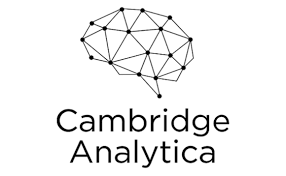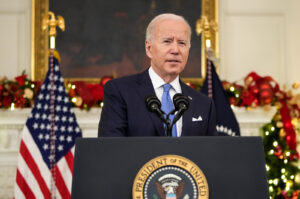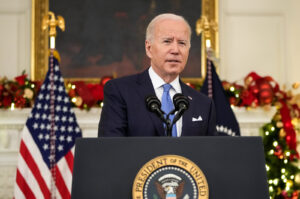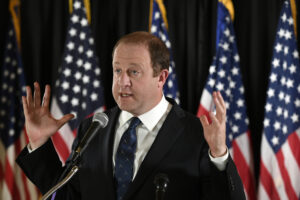Facebook & the U.S. Election 2020
4 min read
Can Facebook ensure a fair election?
Recently, Andrew Bosworth, a close friend of the Facebook’s Mark Zuckerberg, made the remark in an internal memo that Donald Trump was not elected because of misinformation, but of the single best digital ad campaign ever seen from any advertiser.
Now, Facebook said it won’t accept any new political ads in the week leading up to the presidential election, one of several policies that CEO Mark Zuckerberg said will help ensure a fair election in November. USA election 2016 Trump victory leads to a lot of speculation, related to Facebook and Cambridge Analytica.
So, what was the problem and why did it become such a controversial topic? Does Russia have a role to play in it?
Who is Cambridge Analytica?
Cambridge Analytica is a British political data firm, who provides ideas for a prospective client looking for help in a foreign election. In an investigative interview conducted by a reporter from Channel 4 News in Britain with Alexander Nix, who runs the firm, said, “To achieve their client purpose, they would adapt means like sending an attractive woman to seduce a rival candidate and secretly videotape the encounter or sending someone posing as a wealthy land developer to pass a bribe”.
Facebook and Cambridge Analytica
According to reports by various sources including The New York Times, The Observer of London, and Channel 4, Cambridge Analytica had harvested the data from more than 50 million Facebook profiles in its bid to develop techniques for predicting the behavior of individual American voters.
The firm was founded by Stephen K. Bannon and Robert Mercer, a wealthy Republican donor who has put at least $15 million into it. The firm’s so-called psychographic modeling techniques, which were built in part with the data harvested from Facebook, underpinned its work for the Trump campaign in 2016, though many have questioned their effectiveness.
How was the data of Facebook users utilized for the election benefit?
Cambridge Analytica adapted a technique called personality modeling from studies conducted by researchers at Stanford University and the Psychometrics Center at the University of Cambridge.
When Cambridge Analytica approached the Psychometrics Center about using its models, the center declined. It was a system where a 100-question quiz was developed by the Psychometrics Center through a Facebook app called ‘myPersonality’ that assessed a person’s openness, conscientiousness, extroversion, agreeableness, and neuroticism, traits commonly referred to in the academic community by the acronym Ocean.
So, Cambridge Analytica then turned to Aleksandr Kogan, a psychology professor at Cambridge University who was familiar with the center’s work. He developed a Facebook app called ‘thisisyourdigitallife’, a quiz similar to myPersonality, and used it to harvest data from more than 50 million Facebook profiles. Of those, 30 million contained enough information to generate personality profiles. Only 270,000 users authorized Dr. Kogan’s app to have access to their data, and all were told that their information was being used for academic research.
What is Russia’s connection to this political drama?
Russian information operatives working for the Internet Research Agency (IRA) used various social media platforms like Facebook pages, Instagram content and Twitter posts had an overwhelming operational emphasis on race as no single group of Americans was targeted more than African Americans.
This was evident throughout the IRA’s Facebook content, as over 66 percent of it contained a term related to race. And using ads with location aimed at African-Americans in key metropolitan areas, the Russian information operations focused on pages like Blacktivist, which garnered 11.2 million engagements with Facebook users.
Although Russia has repeatedly denied allegations that it attempted to influence the election, in which Mr. Trump was elected ahead of Hillary Clinton. Earlier investigations on Russian interference in the elections, including the Mueller report’s findings and the Jan. 6, 2017, was affirmed by the Intelligence Community Assessment.
The final verdict
Two weeks prior to the US elion 2016 results, Hillary Clinton had 85% chances to win according to Upshot’s elections model based on national election poll. But, the result was opposite to prediction. Donald Trump won the presidency by 306 electoral votes.
Even in countries with more black or Hispanic voters than whites, the relationship between education levels and swing to Trump applied. Though Blacks voted heavily for Democrats, their turnout was down. One reason is that Obama wasn’t the candidate. And, can other explanation be due to Russia’s role in targeting the African- American population?
Facebook today
Facebook is looking closely at the issues of disseminating misinformation about the presidential candidate or the conduct of the election. Mark Zuckerberg, CEO of Facebook, announced few measures taken up by the company to ensure democratic election conduct. Some of the measures include,
- Remove posts that claim that people will get COVID-19 if they take part in the voting, and attach a link to authoritative information about the coronavirus to posts that might use COVID-19 to discourage voting.
- Attach an informational label to content that seeks to delegitimize the outcome of the election or discuss the legitimacy of voting methods, for example, by claiming that lawful methods of voting will lead to fraud.
- If any candidate or campaign tries to declare victory before the final results are in then, add a label to their posts directing people to the official results from Reuters and the National Election Pool.
Conclusion
Facebook recently joined Twitter is removing accounts that spread false stories about racial justice, the Democratic presidential campaign of Joe Biden and Kamala Harris, and President Trump’s policies. The removed accounts were linked to Russian state actors, suggesting Russia is once again seeking to influence U.S. elections with misinformation and by amplifying the differences among Americans. To know the conduct and requirements to participate and vote in the election 2020, click here.












